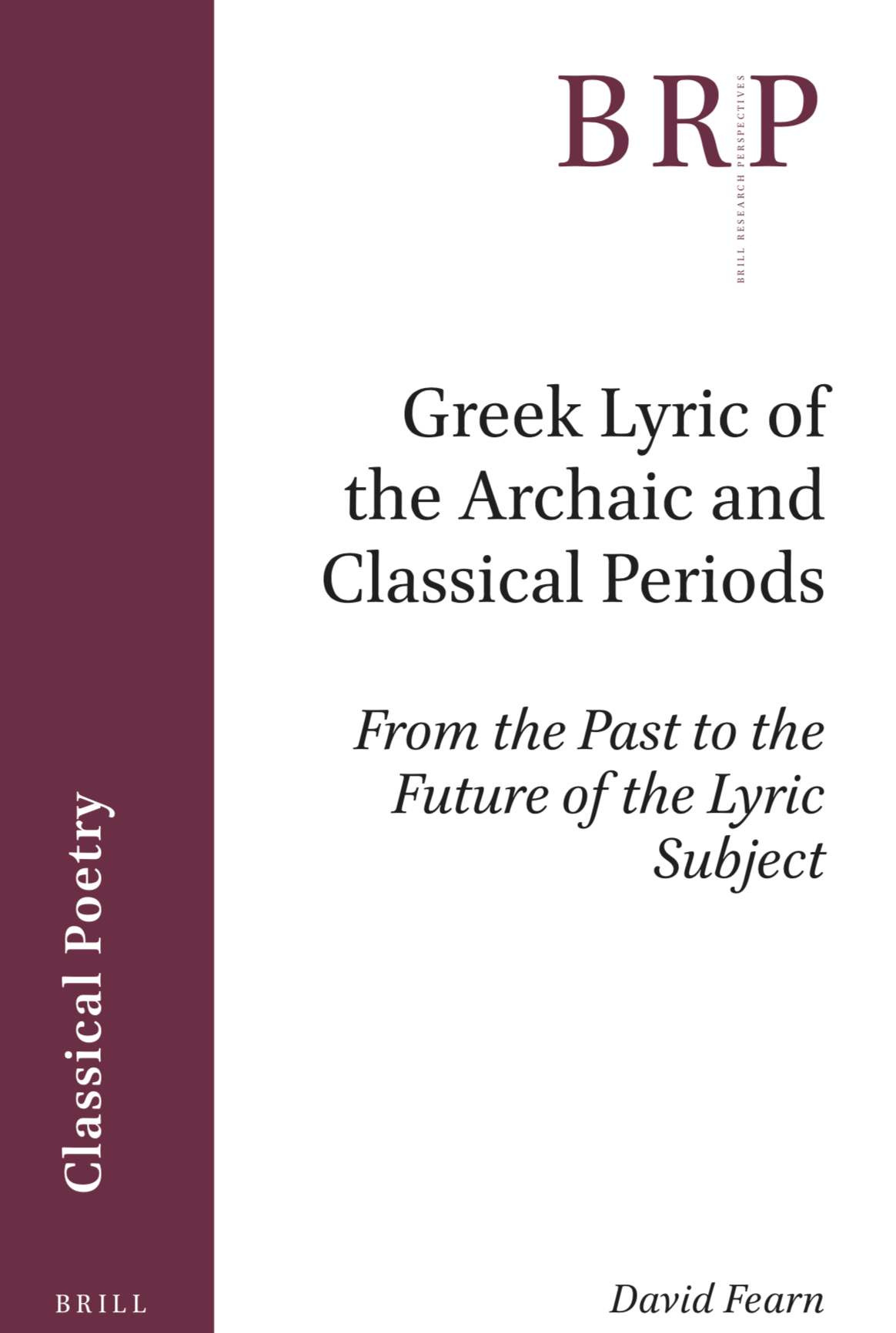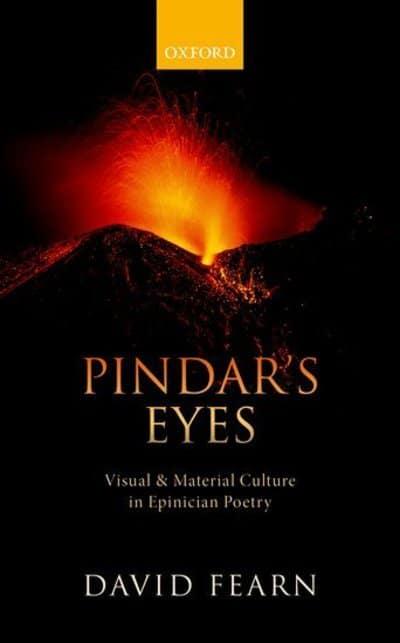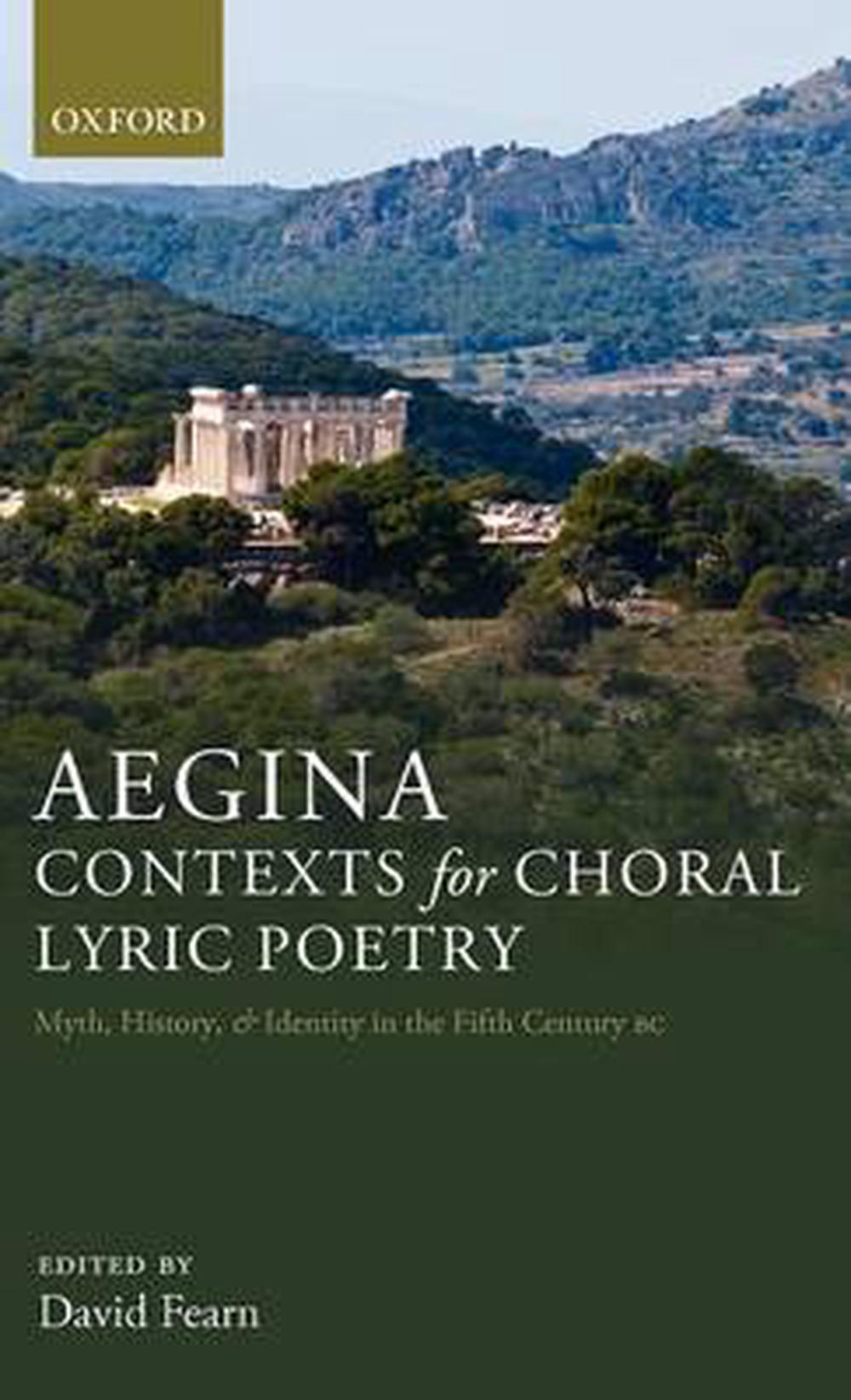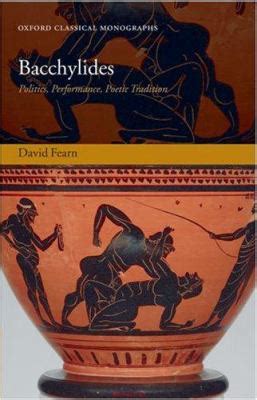Professor David Fearn
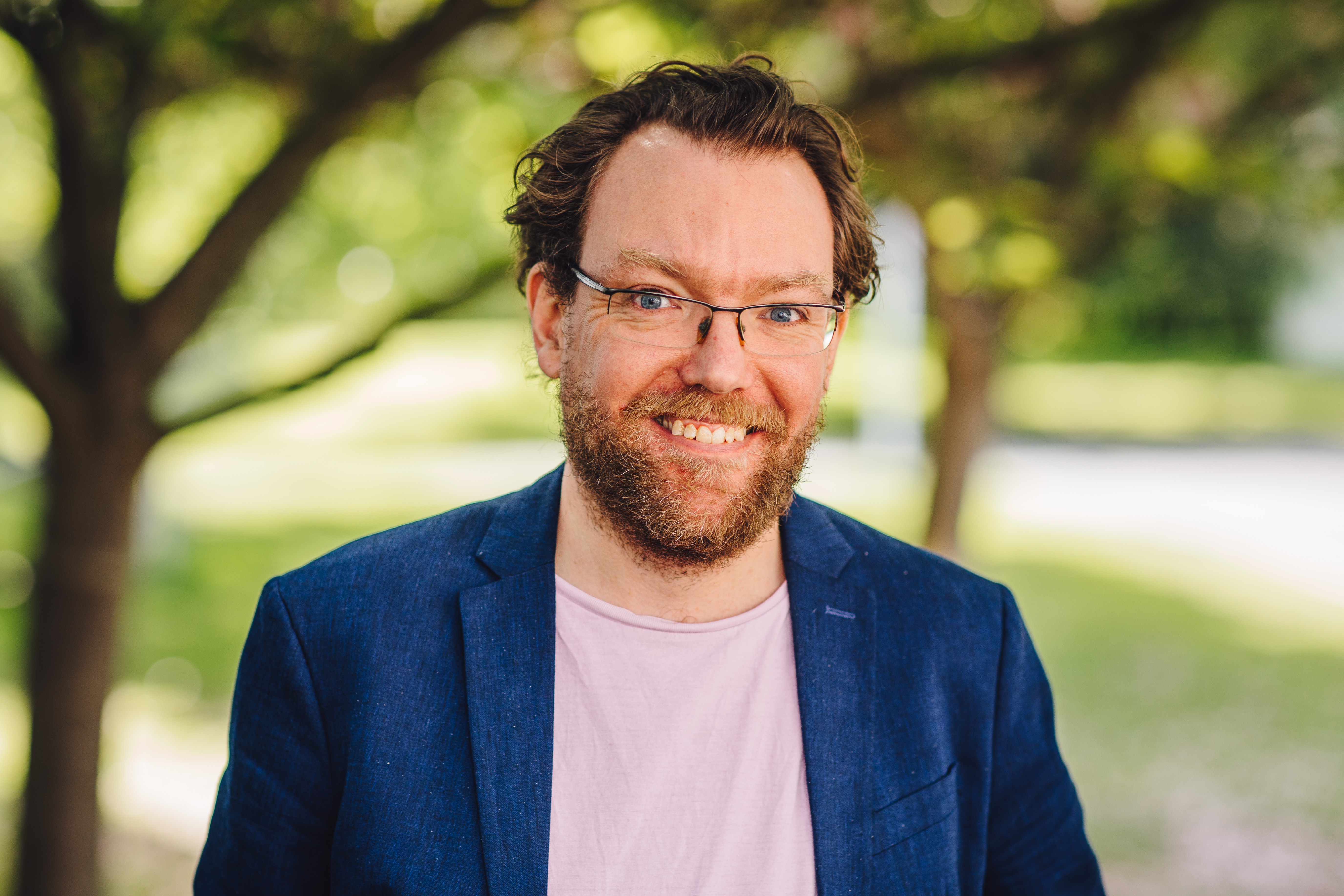
Professor of Greek
Head of Department
Email: D.W.Fearn[at]warwick.ac.uk
Faculty of Arts Building 2.13, University Road,
University of Warwick, Coventry CV4 7AL
About
I studied Classics at Magdalen College, Oxford (Finals in literature and philosophy), writing my doctoral thesis on the Greek choral lyric poet Bacchylides under the supervision of Peter Parsons and Peter Wilson. I was elected in 2003 to a joint Junior Research Fellowship at Corpus Christi College, Cambridge (2003-5) and Corpus Christi College, Oxford (PS Allen Junior Research Fellowship in Classics, 2005-7), and in 2007 to a Mellon Career Development/Junior Research Fellowship at Jesus College/Faculty of Classics, Oxford (2007-). I joined the Warwick department in 2008.
In both my teaching and my research I investigate Greek literary texts across a range of socio-political and cultural contexts, from archaic and classical Greece through to modern spaces of reception and refraction. I am also interested in contemporary critical-theoretical / philosophical approaches to literature, criticism, and the classical.
Research interests
I work on the poetics, aesthetics, and socio-political contextualizability of archaic and classical Greek literature, and of lyric poetry in particular. That is, I investigate the stakes of thinking about, and the possibilities of moving beyond thinking about, Greek literature as a function of its original contexts of production and reception in antiquity; or, perhaps better, I would put it in reverse: the stakes of moving from thinking beyond our present relation to these texts back to a sense of original contexts or settings: why historicise in this way / why not? How else should we/might we operate? And with what stakes, conceptually and theoretically? I take ongoing nourishment from thinking with the poetry of Pindar in particular.
My first book, Bacchylides: Politics, Performance, Poetic TraditionLink opens in a new window, sought to rehabilitate the reputation of this underappreciated poet by situating his work in the ethnic, political, and cultural milieu of early classical Greece; I also edited a collection of essays discussing the interrelation between poetry and culture on the Greek island of Aegina in the 5th century BC: Aegina: Contexts for Choral Lyric Poetry. Myth, History, and Identity in the Fifth Century BCLink opens in a new window.
My latest full-scale monograph, Pindar's Eyes: Visual and Material Culture in Epinician Poetry (Oxford University Press, 2017), seeks to reorient debate about art and text, and the relation between lyric form and lyric contextualization, within Pindaric poetics. Other articles investigating the world-creating powers of Greek lyric poetry have also recently appeared (on Alcaeus; and Anacreon and Stesichorus), as has a book-length survey of trends in the history of modern scholarship on Greek lyric, inaugurating Brill's new Research Perspectives in Classical Poetry series: Greek Lyric of the Archaic and Classical PeriodsLink opens in a new window.
Other areas of interest include classical Greek historiography; broader trends in the development of the relation between ancient Greek poetry and thought within ongoing debates about the nature and conceptualization of classical reception and 'the Classical'; the cultural history of modern papyrological discoveries of Greek literature; and the relation between 'art' and 'text', from antiquity right into the contemporary world.
In May 2018 I hosted an international network of scholars of Greek poetry and poetics, with a cross-disciplinary workshop, Heidegger's Greece, investigating new ways of interconnecting study of ancient Greek poetry and poetics with developments in continental philosophy and critical theory. In October 2019 I acted as a public respondent to the philosopher Simon Critchley, discussing his work on tragedy at the inauguration of Warwick Philosophy's new Centre for Research in Post-Kantian European PhilosophyLink opens in a new window. In autumn 2020 I hosted an international online symposium, Classics in RelationLink opens in a new window, investigating the status of the relation between classical philology / literary criticism and emerging comparativist trends in classical reception and the humanities more generally.
I also have an interest in the history, theory, and practice of photography, which is gradually finding its way into my published work and is also becoming another locus for comparativist and critical-theoretical thinking with ancient lyric poetry - including for instance the investigation of what happens if we juxtapose the landscapes imaged within ancient lyric with the responses to space and place in contemporary landscape photography, environmental art, and contemporary environmental philosophy. This will form the starting-point of my next major monograph project, a sequel of sorts to my 2017 Pindar's Eyes, with current working title of Pindar: Beyond Distance Over Time, which will offer close readings of three to five Pindaric victory odes (and fragments) imbricated with a range of very contemporary methodologies and observations.
Other current interests include the relation between rhetorical and lyric form and content in Gorgias' Encomium of Helen, along with related theoretical questions concerning (a)temporality and untimeliness, rhetorical situatedness, voice, literary and rhetorical exemplarity, and the limits of prose. I am also at work on a study of the relation between Anne Carson, Alice Oswald, Classical lyric poetics, and contemporary theoretical approaches to literary formalism.
My 2022 Professorial inaugural lecture, 'The Future of the Lyric Encounter', set out some of these interconnections for a reconfiguration of what Greek lyric scholarship, and indeed Classical reception studies, might become, starting at the very local level with attention to specific details from Sappho and Pindar and expanding radically outwards.
Teaching and supervision
Undergraduate:
- Encounters with Greek TextsLink opens in a new window (Module Convenor)
- Songs, Texts, Theories: Greek Lyric PoetryLink opens in a new window (Module Convenor)
- The Politics of Archaic and Classical Greek Literature: New Mythologies of the SocialLink opens in a new window (Module Convenor)
- Ancient Thought: Philosophy, Politics, ScienceLink opens in a new window (Module Contributor)
- Hellenistic WorldLink opens in a new window (Module Contributor)
- DissertationsLink opens in a new window (Module Convenor; Supervisor)
Postgraduate:
- Taught MA in Ancient Literature and Thought (Approaching Ancient Texts core module; Greek Literature and Thought optional core module; Advanced Ancient Language; Language Dossier)
- Taught MA in Ancient Visual and Material Culture (Ancient Visual & Material Culture, and its Reception; Advanced Ancient Language)
- MA by research
- PhD
I am eager to supervise postgraduate students who wish to study topics related to Greek literature (especially archaic and classical) across all genres, including the interactions between Greek literary texts and their aesthetic and/or socio-political environments; critical-theoretical approaches to Greek literature; and comparativist approaches to Greek literature, broadly considered.
Current PhD supervision:
Pindar's Corinth (co-tutelle with SNS Pisa)
Presocratic and Literary Meteorology (with Dr Emmanuela Bakola)
Administrative roles
- Head of Department, 2023-
- Member of University Senate, 2023-
- Member of Arts Faculty Board, 2023–
- Member of University Examinations Committee, 2021–
Selected publications
- ‘Imagining bodies with Gorgias.’ In X. Buxton & E. Clifford eds. The Imagination of the Mind in Classical Athens: Forms of Thought (Routledge, 2023) 230–50.
- Greek Lyric of the Archaic and Classical Periods: From The Past to the Future of the Lyric SubjectLink opens in a new window. Brill Research Perspectives in Classical Poetry (RPCP) 1.1 (Brill, 2020)
- 'The allure of narrative in Greek lyric poetry’ in Jonas Grethlein, Luuk Huitink and Aldo Tagliabue (eds.) Experience, Narrative, and Criticism in Ancient Greece: Under the Spell of StoriesLink opens in a new window (Oxford University Press, 2019) 36–58
- ‘Materialities of political commitment? Textual events, material culture, and metaliterarity in Alcaeus’ in F. Budelmann and T. Phillips (eds.) Textual Events: Performance and the Lyric in Early GreeceLink opens in a new window (Oxford University Press, 2018) 93–113
- Pindar's Eyes: Visual and Material Culture in Epinician PoetryLink opens in a new window (Oxford University Press, 2017)
- 'Kleos v stone? Lyric poetry and contexts for memorialization', in P. Liddel and P. Low (eds.) Inscriptions and their Uses in Greek and Latin Literature (Oxford 2013) 231–53
- 'The Keians and their choral lyric: Athenian, epichoric, and panhellenic perspectives’, in L. Athanassaki and E. L. Bowie (eds.) Archaic and Classical Choral Song: Performance, Politics & Dissemination (Berlin 2011) 207–34
- (ed.) Aegina: Contexts for Choral Lyric Poetry. Myth, History, and Identity in the Fifth Century BC (Oxford University Press, 2010)
reviewed in: Religious Studies Review 38.1 (2012) 15 (Jenny Strauss Clay); Greece & Rome 58.2 (2011) 242–3 (Malcolm Heath) - 'Aeginetan epinician culture: naming, ritual, and politics', in Fearn (ed.) Aegina: Contexts for Choral Lyric Poetry, 175–226
- 'Imperialist fragmentation and the discovery of Bacchylides', in M. Bradley (ed.) Classics and Imperialism in the British Empire (Oxford 2010) 158–85
- 'Oligarchic Hestia: Bacchylides 14B and Pindar, Nemean 11', Journal of Hellenic Studies 129 (2009) 23–38
- Bacchylides: Politics, Performance, Poetic TraditionLink opens in a new window (Oxford University Press, 2007)
reviewed in: Bryn Mawr Classical Review 2008.11.14 (Giambattista D'Alessio); Journal of Hellenic Studies 129 (2009) 141–2 (Douglas Cairns); Hermathena 187 (2009) 107-9 (Douglas Gerber) - 'Herodotos 5.17–22. Narrating ambiguity: murder and Macedonian allegiance', in E. Irwin and E. Greenwood (eds.) Reading Herodotus: A Study of the logoi in Book 5 of Herodotus' Histories (Cambridge 2007) 98–127
- 'Mapping Phleious: politics and myth-making in Bacchylides 9', Classical Quarterly 53.2 (2003) 347–67
Professional associations and responsibilities
- Member of the Society for the Promotion of Hellenic StudiesLink opens in a new window
- Committee member of Warwick's Centre for Research in Philosophy, Literature, and the ArtsLink opens in a new window
- Member of Warwick's Environmental Humanities NetworkLink opens in a new window
- Associate member of Warwick's Centre for Research in Post-Kantian European PhilosophyLink opens in a new window
- Referee for American Journal of Philology; Archiv für Papyrusforschung; Bulletin of the American Society of Papyrologists; Classical Antiquity; Classical Philology; Classical Quarterly; Gnomon; Greek, Roman and Byzantine Studies; International Journal of the Classical Tradition; Journal of Hellenic Studies; Mnemosyne; Phoenix; Transactions of the American Philological Association
- Peer reviewer of academic monographs for Cambridge University Press, Oxford University Press, and Oxford University Press (New York)
Qualifications
- BA/MA, Literae Humaniores, Magdalen College, University of Oxford, 1998 (Demy; Double First)
- MSt, Greek and/or Latin Languages and Literature, Magdalen College, University of Oxford, 1999 (Distinction)
- DPhil, Greek Literature, Magdalen College, University of Oxford, 2003
- PCAPP, University of Warwick, 2011
Drop-In Hours for students
Term 3 2023-24:Weeks 1-3
Tuesdays 4.30-5.30pm
Thursdays 12-1pm
Subsequently by arrangement by email.
Teaching
Undergraduate modules
Encounters with Greek TextsLink opens in a new window (Module Convenor)
Ancient Thought: Philosophy, Politics, ScienceLink opens in a new window (Module Contributor)
The Politics of Archaic and Classical Greek Literature: New Mythologies of the SocialLink opens in a new window (Module Convenor)
Songs, Texts, Theories: Greek Lyric PoetryLink opens in a new window (Module Convenor)
Hellenistic WorldLink opens in a new window (Contributor)
Dissertations Link opens in a new window (Supervisor; Module Convenor)
Postgraduate taught modules
Taught MA in Ancient Literature and Thought:
Approaching Ancient Texts: Methodologies, Theories and PracticeLink opens in a new window (Module Co-convenor)
Greek Literature and ThoughtLink opens in a new window (Module Convenor)
Advanced Ancient LanguageLink opens in a new window (Module Co-convenor)
Connect
